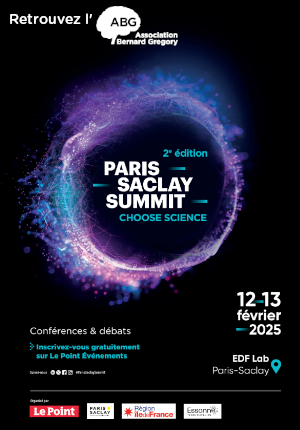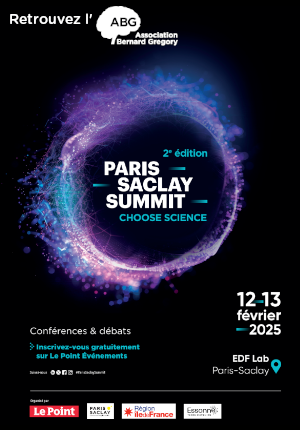ÉTUDE DE MÉTHODE D’INTELLIGENCE ARTIFICIELLE POUR LA SIMULATION ET L’EXTRACTION DE LA PRODUCTION DU BOSON DE HIGGS SE DÉSINTÉGRANT EN DEUX MUONS DANS L’EXPÉRIENCE ATLAS AU LHC // ARTIFICIAL INTELLIGENCE TO SIMULATE BIG DATA AND SEARCH FOR THE HIGGS BOSON
| ABG-127603 | Thesis topic | |
| 2024-12-17 | Public/private mixed funding |
CEA Paris-Saclay Groupe Atlas (ATLAS)
Saclay
ÉTUDE DE MÉTHODE D’INTELLIGENCE ARTIFICIELLE POUR LA SIMULATION ET L’EXTRACTION DE LA PRODUCTION DU BOSON DE HIGGS SE DÉSINTÉGRANT EN DEUX MUONS DANS L’EXPÉRIENCE ATLAS AU LHC // ARTIFICIAL INTELLIGENCE TO SIMULATE BIG DATA AND SEARCH FOR THE HIGGS BOSON
- Physics
- Earth, universe, space sciences
Physique des particules / Physique corpusculaire et cosmos
Topic description
Les nouvelles techniques d’intelligence artificielle suscitent un intérêt croissant pour gérer le volume massif de données collectées par les expériences de physique des particules en particulier au collisionneur LHC. Cette thèse propose d’étudier ces nouvelles techniques pour la simulation du bruit de fond d’événements rares provenant de la désintégration en deux muons du boson de Higgs ainsi que de mettre en place de nouvelle méthode d’intelligence artificielle pour simuler la réponse de la résolution du détecteur du spectromètre à muons, qui est un élément crucial pour cette analyse.
------------------------------------------------------------------------------------------------------------------------------------------------------------------------
------------------------------------------------------------------------------------------------------------------------------------------------------------------------
There is growing interest in new artificial intelligence techniques to manage the massive volume of data collected by particle physics experiments, particularly at the LHC collider. This thesis proposes to study these new techniques for simulating the rare-event background from the two-muon decay of the Higgs boson, as well as to implement a new artificial intelligence method for simulating the response of the muon spectrometer detector resolution, which is crucial for this analysis.
------------------------------------------------------------------------------------------------------------------------------------------------------------------------
------------------------------------------------------------------------------------------------------------------------------------------------------------------------
Pôle fr : Direction de la Recherche Fondamentale
Département : Institut de recherche sur les lois fondamentales de l’univers
Service : Service de Physique des Particules
Laboratoire : Groupe Atlas (ATLAS)
Date de début souhaitée : 01-10-2025
Ecole doctorale : PHENIICS (PHENIICS)
Directeur de thèse : NIKOLAIDOU RODANTHI
Organisme : CEA
Laboratoire : DRF/IRFU/SPP/Atlas
URL : https://www.linkedin.com/in/rosy-nikolaidou-42811072/
URL : https://irfu.cea.fr/dphp/index.php
------------------------------------------------------------------------------------------------------------------------------------------------------------------------
------------------------------------------------------------------------------------------------------------------------------------------------------------------------
There is growing interest in new artificial intelligence techniques to manage the massive volume of data collected by particle physics experiments, particularly at the LHC collider. This thesis proposes to study these new techniques for simulating the rare-event background from the two-muon decay of the Higgs boson, as well as to implement a new artificial intelligence method for simulating the response of the muon spectrometer detector resolution, which is crucial for this analysis.
------------------------------------------------------------------------------------------------------------------------------------------------------------------------
------------------------------------------------------------------------------------------------------------------------------------------------------------------------
Pôle fr : Direction de la Recherche Fondamentale
Département : Institut de recherche sur les lois fondamentales de l’univers
Service : Service de Physique des Particules
Laboratoire : Groupe Atlas (ATLAS)
Date de début souhaitée : 01-10-2025
Ecole doctorale : PHENIICS (PHENIICS)
Directeur de thèse : NIKOLAIDOU RODANTHI
Organisme : CEA
Laboratoire : DRF/IRFU/SPP/Atlas
URL : https://www.linkedin.com/in/rosy-nikolaidou-42811072/
URL : https://irfu.cea.fr/dphp/index.php
Funding category
Public/private mixed funding
Funding further details
Presentation of host institution and host laboratory
CEA Paris-Saclay Groupe Atlas (ATLAS)
Pôle fr : Direction de la Recherche Fondamentale
Département : Institut de recherche sur les lois fondamentales de l’univers
Service : Service de Physique des Particules
Candidate's profile
Un master-2 ou niveau équivalent avec cours de physique des particules. Une connaissance préalable des langages informatiques orientés objet (C ++, python)
Apply
Close
Vous avez déjà un compte ?
Nouvel utilisateur ?
More information about ABG?
Get ABG’s monthly newsletters including news, job offers, grants & fellowships and a selection of relevant events…
Discover our members
 CESI
CESI  Ifremer
Ifremer  CASDEN
CASDEN  Généthon
Généthon  Nokia Bell Labs France
Nokia Bell Labs France  Aérocentre, Pôle d'excellence régional
Aérocentre, Pôle d'excellence régional  Groupe AFNOR - Association française de normalisation
Groupe AFNOR - Association française de normalisation  Institut Sup'biotech de Paris
Institut Sup'biotech de Paris  Institut de Radioprotection et de Sureté Nucléaire - IRSN - Siège
Institut de Radioprotection et de Sureté Nucléaire - IRSN - Siège  TotalEnergies
TotalEnergies  ADEME
ADEME  SUEZ
SUEZ  Tecknowmetrix
Tecknowmetrix  ANRT
ANRT  PhDOOC
PhDOOC  ONERA - The French Aerospace Lab
ONERA - The French Aerospace Lab  MabDesign
MabDesign  Laboratoire National de Métrologie et d'Essais - LNE
Laboratoire National de Métrologie et d'Essais - LNE  MabDesign
MabDesign






